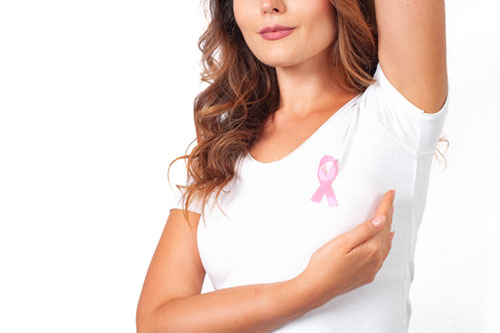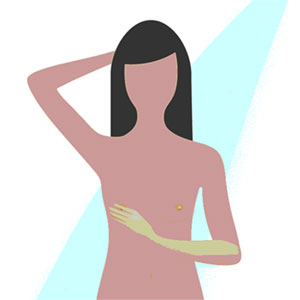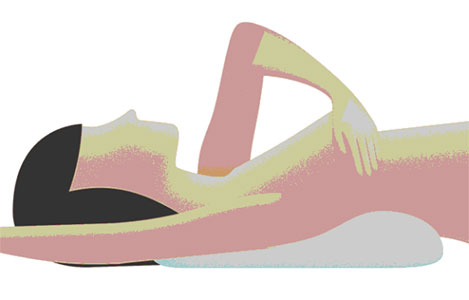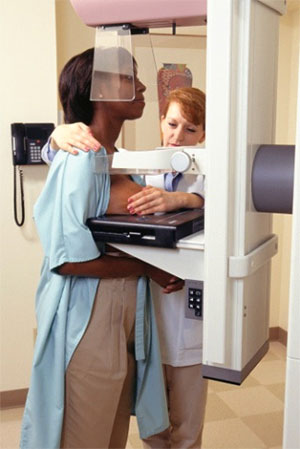Out of 10 new cancer diagnoses, at least one is of breast cancer. Breast cancer is also the second most common reason for cancer death and the mortality rates continue to increase.
It is one of the few cancers with reliable screening tests and many a time, a breast cancer diagnosis is done during regular screening. In other cases, women may notice a breast lump, variations in breast size/shape and they may also have discharge from the nipples.

A medical examination, imaging tests (the most important being a mammogram) and a biopsy will be needed to confirm breast cancer. Early diagnosis is crucial for recovery thus emphasising the need for screening mammograms during annual master health check-ups.
Frequently Asked Questions About Breast Cancer
What Is Breast Cancer?
Breast cancer is a cancer of the cells that border the ducts and lobules of the breast.
What Are the Symptoms of Breast Cancer?
Usually, the following symptoms are observed:
- A mass or lump in the breast with no accompanying pain
- Ballooning of skin
- Furrowing of skin
- Skin wrinkling
- Withdrawn nipples
- Altered skin colour with discharge
While encountering any of these symptoms does not always mean breast cancer, it does warrant a consult with a specialist.
Also Read Breast Cancer: Early Signs, Diagnosis and Treatment
What Are the Top Risk Factors for Breast Cancer?
The factors which influence breast cancer risk range from hormonal and lifestyle-related factors to environmental factors. Some of the other risk factors are listed below:
- Starting menstruation early
- Late set-in of menopause
- Late pregnancies (after 30 years) or alternatively, no previous pregnancy
- Making use of oral birth control pills
- Not having breastfed after delivery
- Breast cancer in the family
- Radiation exposure
- Presence of certain inherited genetic changes [BRCA1, BRCA2 mutations]
- Alcohol use
- Obesity after menopause
- Long-term use of hormone replacement therapy
What Is Breast Cancer Screening?
Screening refers to checking regularly (preferably every year) for incipient signs of breast cancer, so that any small changes can be picked up and treatment started if necessary.
What Are the Different Breast Cancer Screening Methods?
- Self-examination of breasts
- Clinical examination of breasts by a doctor
- Mammogram
- MRI
How Should a Breast Self-Exam Be Performed?

While Bathing
Use your fingers (preferably the pointer, middle finger and ring finger) to gently massage the breasts and check for any lump/solidification in the breast. Make sure to check both breasts every month.
In Front of a Mirror
With your arms by your sides, look at your reflection in the mirror and look for any visible changes in size. After this, raise both your arms above your head. Check for bulges or lumps. Also examine the nipples for any change or discharge. Now, keep your palms on your hips and press to tilt the muscles of the chest. Both breasts will not look alike so just pay attention to any wrinkling or furrowing that is prominent on one side alone.
Lying Down

While lying down, the breast is spread flat. Keep a cushion behind the right shoulder and arm. Using the left hand, check the right breast with slight pressure. Check for nipple discharge by squeezing the nipple. In the same way, also check the left breast.
What Is a Mammogram?

In simple terms, a mammogram is an x-ray image of the breast to pick up signs of breast cancer.
How Is a Mammogram Done?
The patient is required to stand with her breast positioned on a plate. Another plate called a paddle will compress the breast. X-rays will be directed through the breast in this position and received by a detector.
Is Mammography Painful?
Being pressed by the plates during mammography might hurt slightly. Therefore, patients are advised to get the test done a week after their menstrual cycle to keep discomfort to a minimum.
When Should I Start Doing Screening Mammograms? How Often Should I Do Them?
Screening is advised for women over the age of 40 years and should be done every year from then.
Till What Age Should I Do Mammograms?
There is no time at which you can stop having a mammogram after 40 years. It would be best to get it done every year for the remainder of your lifetime.
Do All Pains in the Breast Direct to Breast Cancer?
Many women do experience pain in the breast before or after their periods. However, this pain is rarely related to cancer. But if the pain persists for more than 3 weeks, it is necessary to get it checked.
How Can I Lower My Chances of Getting Breast Cancer?
Unfortunately, there is no absolute way of preventing breast cancer. However, there are a few things that can be followed to lessen the risk:
- Reduce alcohol consumption
- Work-out regularly
- Maintain optimum weight
- Exclusively breastfeed your baby for the first 6 months and continue supplementing for a year or more
What Treatments Are Used for Breast Cancer?
The most common treatment for breast cancer is surgery.
Radiation therapy and chemotherapy are also used.
CARE AND BE AWARE – BREAST CANCER
The incidence of breast cancer is rising
And the toll it takes in the affected families is worrying
Is there a method of detecting or preventing breast cancer?
And make it day-by-day a less terror
‘be familiar with breast is what is told’
Then you shall detect the early changes of cancer you hold
Painless lump in breast or armpit, any distortion in breast or nipple
Definitely should create in your mind a ripple!!!
Bloody discharge from the nipple or any untoward breast skin changes
Immediately should strike in your mind hospital/doctor images
Scans and needle tests will follow on the breast,
And shall further put your sinister doubts to rest.
If u ask me “Is there a way to detect breast cancer early?”
Yes, I must say, with a screening mammogram yearly.
Starting breast imaging from 40 years of age,
You must practice it strictly like a sage.
Seek a genetic test if history of family or ovarian cancers in your family,
Pre- and post-test counselling from your doctor shall help surely.
A final word of wisdom – “You can prevent breast cancer too!”
A healthy diet, exercise and a modified lifestyle are a must need to do.

